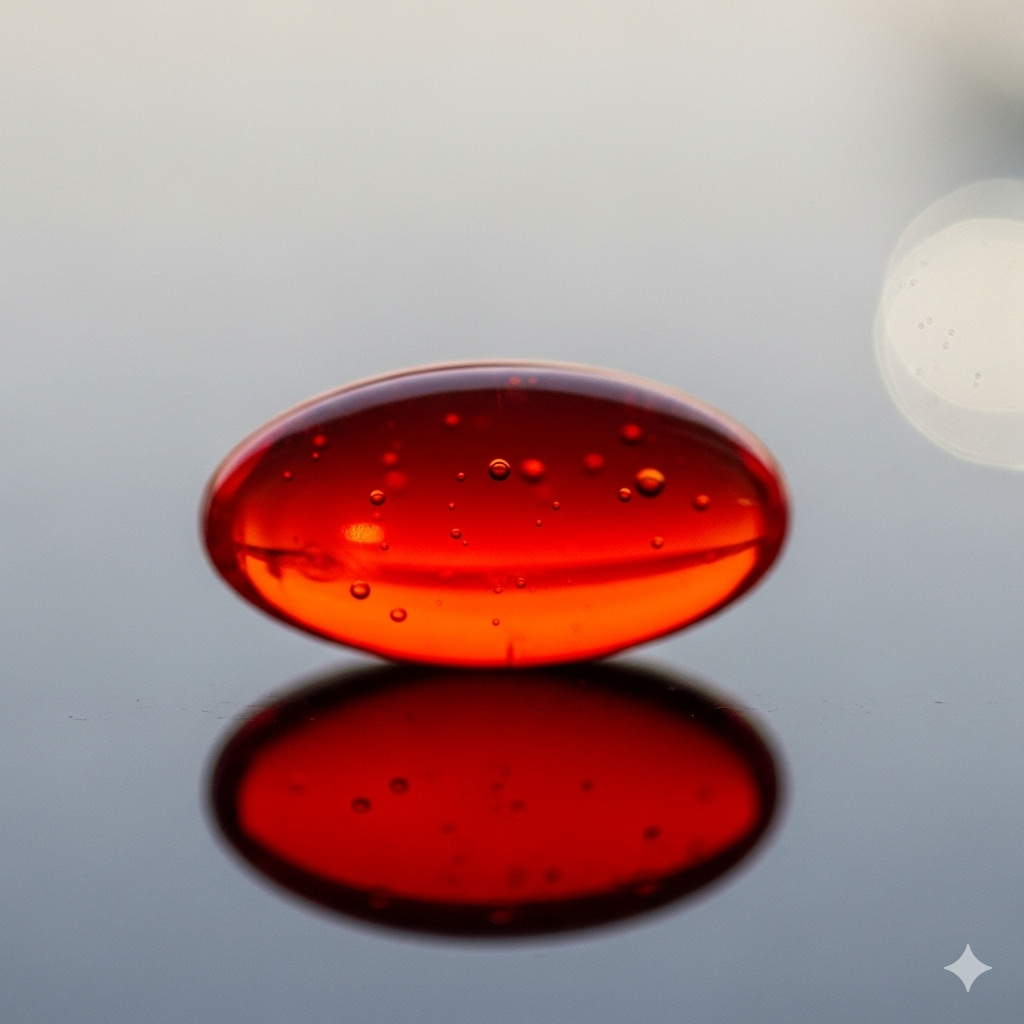BENEFITS OF KRILL OIL

Krill oil has become one of the most popular dietary supplements in recent years, often compared to traditional fish oil. Extracted from small, shrimp-like crustaceans called Euphausia superba, found in the cold waters of the Antarctic Ocean, krill oil is known for its high concentration of omega-3 fatty acids. Unlike fish oil, krill oil contains phospholipid-bound omega-3s, which may be more easily absorbed by the human body. The benefits of krill oil go far beyond heart health – this marine supplement is packed with omega-3s that support brain function, reduce inflammation, and boost overall wellness.
- BENEFITS OF KRILL OIL
- The Nutritional Power of Omega-3 in Krill Oil
- Health Benefits of Krill Oil
- 1. Supports Heart Health
- 2. Reduces Inflammation
- 3. Boosts Brain and Nervous System Function
- 4. Improves Joint and Muscle Health
- 5. Promotes Eye Health
- 6. Enhances Skin and Cellular Health
- Krill Oil vs. Fish Oil: Which Is Better?
- Possible Side Effects of Krill Oil
- How to Use Krill Oil Safely
- Who Should Consider Taking Krill Oil?
These tiny sea creatures are also rich in astaxanthin, a natural antioxidant that gives krill its reddish color. With its unique composition, krill oil has been linked to improved cardiovascular health, brain and nervous system support, reduced inflammation, and better overall well-being.

The Nutritional Power of Omega-3 in Krill Oil
Omega-3 fatty acids are essential for the human body, yet they cannot be produced naturally and must be obtained through diet or supplements. Krill oil provides two of the most important omega-3 fatty acids:
- Eicosapentaenoic acid (EPA)
- Docosahexaenoic acid (DHA)
These fatty acids are essential building blocks of cell membranes, contributing to heart health, brain function, and eye development. Research suggests that omega-3s from krill oil may be more bioavailable compared to fish oil, giving it a potential edge as a supplement.
Health Benefits of Krill Oil
1. Supports Heart Health
Krill oil has been shown to lower total cholesterol and triglyceride levels, while also increasing levels of HDL (the “good” cholesterol). By supporting healthy cholesterol balance, krill oil may reduce the risk of heart disease, heart attack, and stroke.
2. Reduces Inflammation
Chronic inflammation is linked to numerous health issues, including arthritis, obesity, and cardiovascular disease. Krill oil contains both omega-3 fatty acids and astaxanthin, a potent antioxidant. Together, these compounds help reduce inflammation and oxidative stress in the body.
3. Boosts Brain and Nervous System Function
Omega-3 fatty acids are essential for brain function and cognitive performance. Krill oil has been associated with improved memory, concentration, and mood regulation. Some studies also suggest that it may help lower anxiety levels and support mental well-being.
4. Improves Joint and Muscle Health
By reducing inflammation, krill oil may ease joint pain and stiffness, particularly in individuals with arthritis or other inflammatory conditions. Athletes and active individuals also use krill oil to support muscle recovery and flexibility.
5. Promotes Eye Health
The DHA found in krill oil plays a crucial role in maintaining the structure of the retina. Regular intake of krill oil may help protect against age-related macular degeneration and support long-term eye health.
6. Enhances Skin and Cellular Health
Thanks to its omega-3 and antioxidant content, krill oil may improve skin elasticity, hydration, and overall appearance. Astaxanthin also helps protect skin cells from damage caused by free radicals and UV exposure.
Krill Oil vs. Fish Oil: Which Is Better?
Both krill oil and fish oil are excellent sources of omega-3 fatty acids. However, krill oil has some unique advantages:
- Better absorption: The phospholipid structure in krill oil makes it easier for the body to absorb.
- Rich in antioxidants: Unlike fish oil, krill oil naturally contains astaxanthin.
- No fishy aftertaste: Many users report fewer digestive issues and less fishy burps compared to fish oil supplements.
That said, krill oil is usually more expensive than fish oil, and both options provide significant health benefits.
Possible Side Effects of Krill Oil
While krill oil is generally safe for most people, it may cause mild side effects in some individuals. These include:
- Stomach discomfort or bloating
- Nausea or diarrhea
- Headaches
- Heartburn
People who are allergic to shellfish should avoid krill oil supplements. Additionally, because omega-3s can thin the blood, individuals taking anticoagulant medications (such as warfarin) should consult a doctor before using krill oil.
How to Use Krill Oil Safely
The recommended dosage of krill oil varies depending on the brand and concentration, but most supplements provide 250 mg to 500 mg per day. To ensure safe and effective use:
- Always follow the instructions on the supplement label.
- Take krill oil with meals for better absorption.
- Consult your doctor before starting if you have chronic health conditions or are taking medications.
Who Should Consider Taking Krill Oil?
Krill oil may be beneficial for:
- People with high cholesterol or triglyceride levels
- Those at risk of cardiovascular disease
- Individuals experiencing joint stiffness or inflammation
- Students and professionals who want to improve concentration and memory
- Older adults seeking to support brain, eye, and heart health
Krill oil is a powerful dietary supplement rich in omega-3 fatty acids and antioxidants. Its potential benefits include supporting heart and brain health, reducing inflammation, improving joint flexibility, and protecting eye health. While generally safe, it should be taken under medical guidance, especially for individuals with health conditions or those using prescription medications.
By adding krill oil to a balanced diet, many people m





